 A woman sells vegetables at a local produce market in Georgia.
CREDIT: USAID
A woman sells vegetables at a local produce market in Georgia.
CREDIT: USAID
 A woman sells vegetables at a local produce market in Georgia.
CREDIT: USAID
A woman sells vegetables at a local produce market in Georgia.
CREDIT: USAID
In the Republic of Georgia of just a few years ago, McDonald’s wasn’t a fast food. The journey from production to plate used to be arduous and long. Along the Georgian border, McDonald’s trucks could be spotted languishing—sometimes up to two or three days—waiting for customs officials to inspect and clear their cargo.
The process was as arbitrary as it was frustrating: “You could never say which terminal was better or worse. All were the same: a long physical inspection process, poor professionalism, flourishing bribery, and a permanent wasting of time and nerves,” according to Tamaz Megrelishvili, purchasing manager of McDonald’s Georgian franchises and T&K Restaurants LTD.
Now, a series of customs reforms by the Ministry of Finance and the State Revenue Service have expedited clearance procedures, in part by promoting an efficient allocation of state resources. The physical inspections previously undertaken on all shipments were replaced by an automated, risk-based system to identify suspect cargo—with now only the 15 percent of cargo flagged as risky receiving physical inspections. By eliminating unnecessary inspections, this process has also reduced opportunities for corruption.
The new system is straightforward, which allows managers like Megrelishvili to plan ahead of time: “When the cargo reaches the terminal, I can fix precisely the timeframe of all operations to be undertaken after the clearance process. Loaders, who waited for cargo in the garage for hours, sometimes even for days, can now enjoy a normal work schedule and go home in time.”
In addition to the personal benefits for managers and loaders alike, the savings for businesses add up to an estimated $90 million annually.
The new customs regulations are just one of the many reforms that have moved Georgia from number 112 to number 12 out of 181 countries ranked by the World Bank in its annual Ease of Doing Business survey, all in the span of four years. The transformation was called “unprecedented” by World Bank economist Simeon Djankov. Georgia is now ranked as having a more attractive regulatory climate than France, Germany, and the Netherlands.
Other results of this transformation include more efficient hospitals, gas pipelines to heat remote villages, and a range of improvements to make government offices more responsive to citizens. In Zugdidi, in western Georgia, local officials and a construction company were finally able to build a children’s playground after regulations and paperwork were simplified.
The rapid progress seen in Georgia had another element as well—years of experience and knowledge from USAID’s work in other parts of Central and Eastern Europe. Beginning with the earliest programs just after the fall of the Soviet bloc, USAID and its partners have built a deep bank of expertise that yields positive impacts around the world today.
Both Poland and Hungary have inspired the successful package of business, legal, and institutional reforms implemented in Georgia. While Hungary transitioned gradually to a more market-oriented system, known as “goulash communism,” Poland took a dose of “shock therapy”—unleashing market forces soon after the first opposition government in the Eastern bloc took over in August 1989. The Balcerowicz Plan, named for Poland’s visionary finance minister, eliminated price controls, abolished preferential credits for state-owned companies, and allowed companies to declare bankruptcy, among other measures.
“Nineteen eighty-nine marked the beginning of new era. It was completely unexpected, and there was no road map for transition. In the midst of all the hope and confusion, USAID had to rethink every approach. That investment is still paying off in the work we do today,” said Paige Alexander, assistant administrator for USAID’s Bureau for Europe and Eurasia.
Poland and the other former planned economies, emerging from economic stagnation in the 1980s, needed market-based structures, institutions, regulations, and private-sector businesses. The United States contributed to the process through the 1989 SEED (Support For East European Democracy) Act passed
“The commitment of the Government of Georgia was a key factor in the impressive impact of this project,” says David Gosney, who directed the Office of Economic Growth in the Tbilisi mission during the project. “The Government worked with us at every step, from initial project design, through implementation, and even design of the follow-on project. It wasn’t always easy finding the balance between pre-determined performance targets and the flexibility to respond to real-time, changing needs, but working directly with the prime minister’s office helped us prioritize based on political will.”
USAID provided comprehensive technical and material support for the process. For example, the Agency brought in tax experts to simplify the filing system only once the government was in a position to act. USAID also provided analysis, proposals, and implementation assistance on laws, regulations, and institutional capacity building in support of Georgia’s dynamic reform agenda.
By the U.S. Congress with bipartisan support. The law provided for critical assistance to promote democracy and economic reforms throughout Central and Eastern Europe.
“From late November—when the SEED Act was passed—through Christmas we were working night and day,” said Donald Pressley, former USAID mission director in Poland. “We had six weeks left in 1989 to develop a plan.”
By December, Poland was suffering from hyperinflation, a currency that could not be converted, and an inefficient economy with subsidies amounting to 15 percent of the gross national product. All governmental services were centralized, but the system had broken down and social benefits were deteriorating; the regulatory framework and financial infrastructure were also weak. The economy struggled due to a lack of trained entrepreneurs with adequate access to credit as well as an industrial sector incapable of adapting to the new conditions of a market economy.
To help Poland achieve the double transition from a centrally planned economy to a private-sector led competitive economy, and from a society ruled by a single-party political structure to a vibrant participatory democracy, USAID worked in partnership with the Polish Government. The Agency provided technical advice and other support as Poland’s leadership privatized state-owned enterprises, and improved the regulatory and institutional environment in which businesses and civil society operate.
Over the next years, USAID supported Poland’s ambitious efforts to restructure public debt, private banks, and set the flailing economy on a stronger macro-economic footing. Poland worked with USAID, other U.S. Government agencies, and other development partners to pull itself out of recession and fundamentally transform its society and economy.
During that time, USAID also worked directly with the Polish private sector to reinvigorate the economy. Private businesses needed financing to grow and adjust to the new market realities, and USAID/Poland responded to this need by creating a fund to provide loans to viable businesses. The Polish-American Enterprise Fund, established in 1989, was a commercial venture, started with sufficient capital to cover operating costs, but structured to earn enough income to become self-sustaining.
For businesses with little experience in a market economy, USAID helped entrepreneurs develop business skills—marketing, management, finance, and a host of other fundamental abilities.
Says Eric Postel, assistant administrator for USAID’s Bureau for Economic Growth, Agriculture and Trade: “When Poland began down the reform route in 1989, there was no clear path to move from a command economy to a market system. Thanks to the thoughtful and successful efforts of our Polish counterparts, our own staff, and our donor partners, combined with a willingness to rethink and rework approaches, the path for future reformers has become clearer. Our work made a difference for Poland, and the lessons learned continue to provide a foundation for improved assistance.”
And what a difference—Poland is now a member of the European Union.
“One of the major lessons from our work in Eastern Europe was the importance of the laws, regulations, and institutions that underpin a well-functioning market economy,” notes Nick Klissas, USAID senior commercial law adviser.
Poland served as the starting point for USAID’s well-established Commercial Legal and Institutional Reform (CLIR) programs and tools. Frustrated with slow progress in the early years of reform, the Agency developed analytical tools for identifying constraints to growth in the commercial sector, moving beyond laws—which often were passed but not implemented—to the government and private sector institutions crucial to success.
Building on the first CLIR analysis conducted in Poland in 1998, USAID has now developed a series of policy environment diagnostics, including a gender-sensitive agricultural policy tool used in the Feed the Future initiative, the Obama administration’s global food security effort, led by USAID. Tools born in Poland have since been adapted and used on every continent.
“USAID’s ability to learn from the past has paid off,” says Jock Conly, acting mission director for Georgia. “What took 10 years in Poland took only four in Georgia.”
USAID/Georgia is currently implementing the Economic Prosperity Initiative, a project that focuses on accelerating growth in the private sector to help create a brighter economic future for all Georgians. And lessons of Georgia—flexibility in design, direct support to country-owned initiatives, and increased private-sector participation in policy—will inspire the next generation of reforms.
When Tariel Chanturia, one of Georgia’s most renowned poets, wanted to publish his poetry, he found out that he had to register as an individual entrepreneur first. Instead of the nightmare experience he expected, he was helped in no time—and with no bribe—thanks to the streamlined tax registration process. It was “a fairy tale” according to Chanturia. “A couple of years ago it would have taken all my lifetime, nerves, and half of my honoraria.”







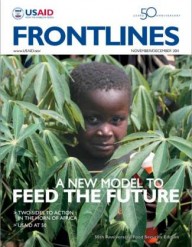

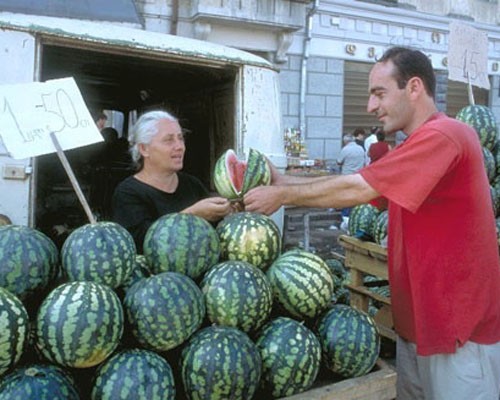
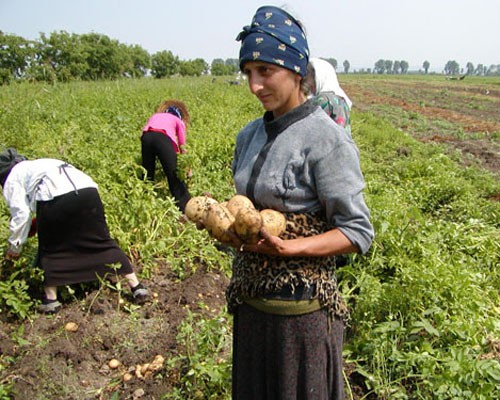
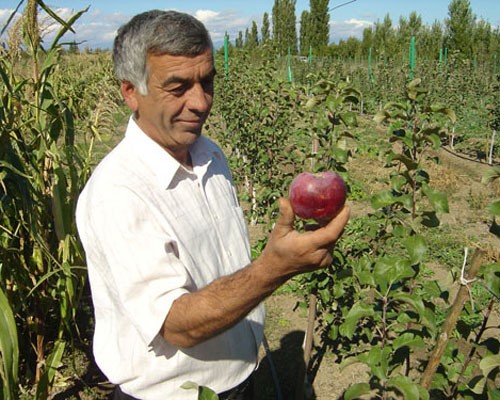
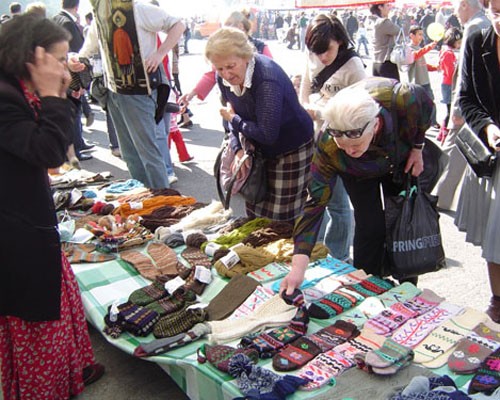
Comment
Make a general inquiry or suggest an improvement.